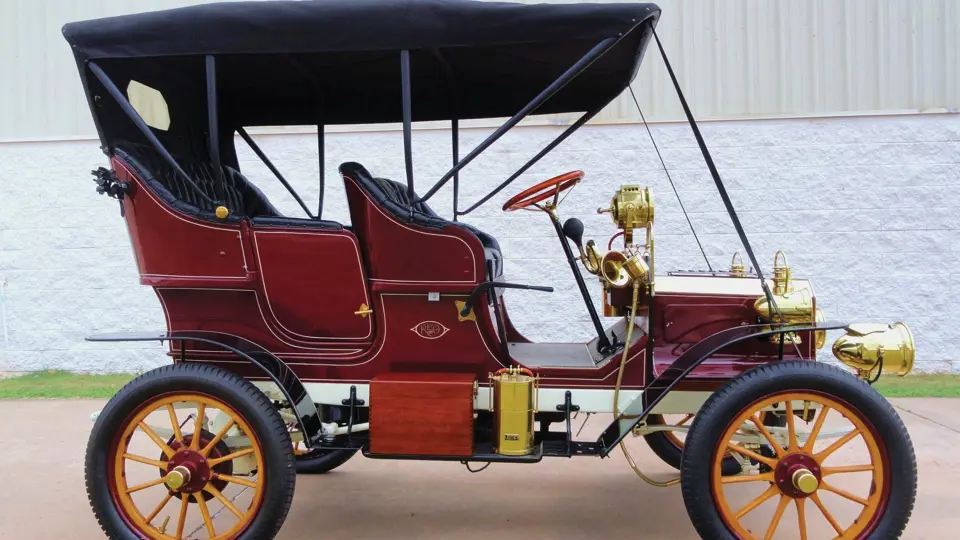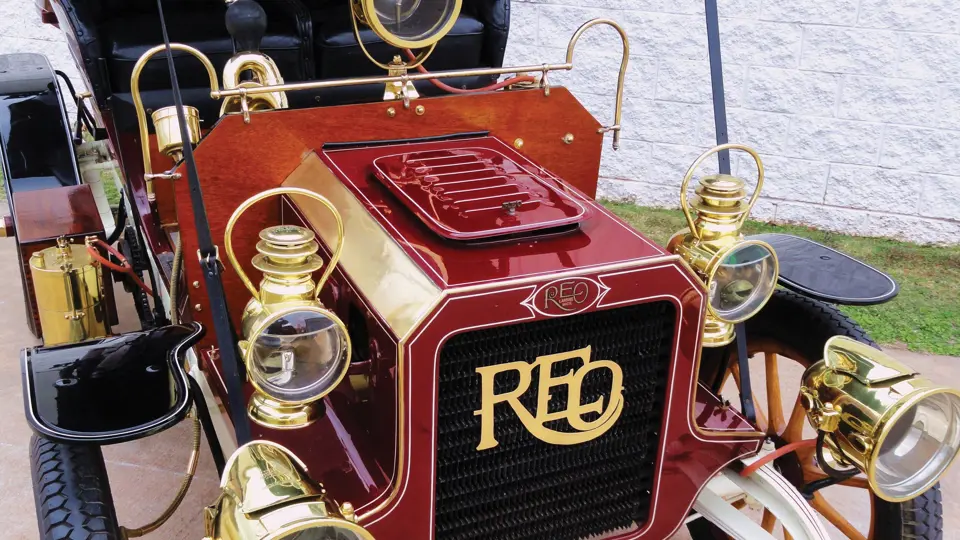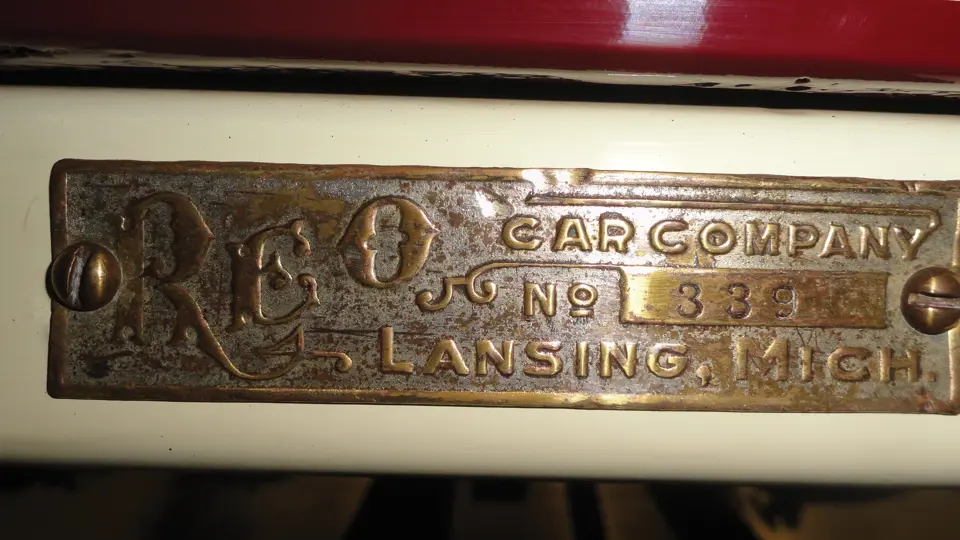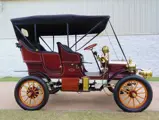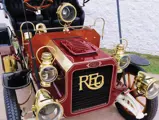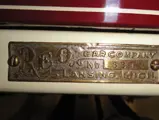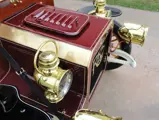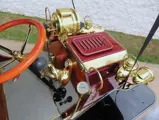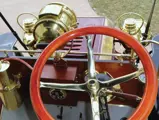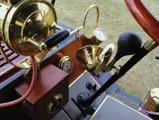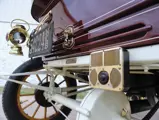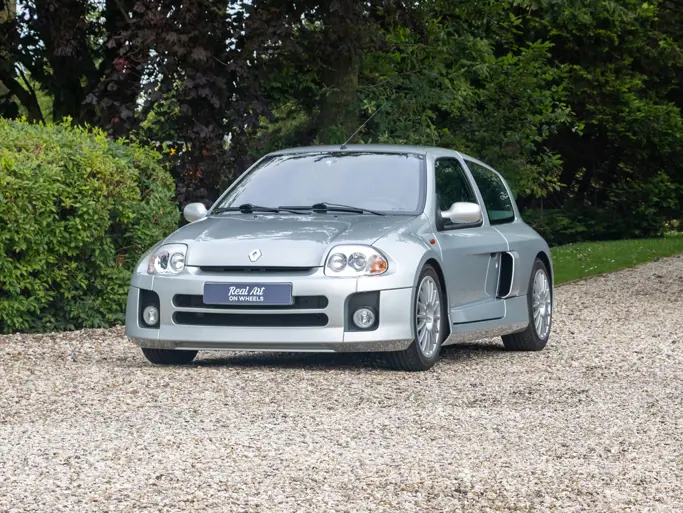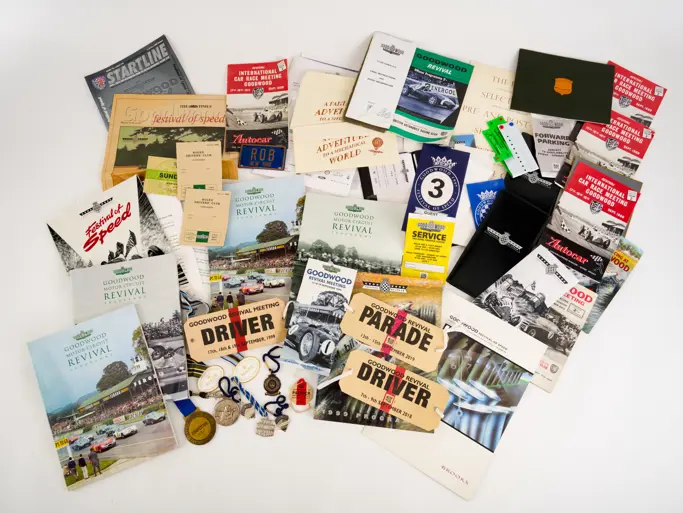16 hp, 35.4 cu. in. horizontally opposed L-head two-cylinder engine, two-speed planetary transmission, solid front axle and live rear axle with semi-elliptic leaf springs and single chain drive, and two-wheel mechanical drum brakes. Wheelbase: 88 in.
Although his curved-dash Oldsmobile was America’s best-selling car, Ransom Olds found himself quarreling with his principal investor, Samuel Smith, and his sons, Frederic and Angus, who were managing the Olds Motor Works. The Smiths felt the future lay in larger, more expensive cars, while Olds was committed to more economical vehicles. In January 1904, after a heated argument with Fred Smith, Olds left. He didn’t stay away from the auto industry very long. That summer, he founded the R.E. Olds Company, changing it to REO Motor Car Company, using his initials, after the Smiths complained.
The first REO car was completed that October and exhibited at the New York Auto Show in January 1905. This 16-horsepower, twin-cylinder car sold for $1,250, and it was soon joined by a smaller single-cylinder sibling, with an engine just half its size and priced at $650. At curved-dash Olds prices, it was a lot more car, and Olds no doubt felt vindicated when REO sales surged ahead of Oldsmobile’s in 1906. Single-cylinder cars were continued until 1910, alongside the twin, until both were superseded by four-cylinder models.
This two-cylinder REO, bearing chassis number 339, is a very early production model that was built soon after manufacture commenced on October 15, 1904. That first car was tested for 2,000 miles, with Olds himself at the wheel most of the time. It was the recipient of an older, well-cared-for restoration, but it still shines with plenty of correct and authentic brass, including a center-mounted spotlight with a dash-mounted carbide generator, a running board-mounted Sunlyte carbide generator for the Gray & Davis headlights and matching side lights and taillights, and a clock, speedometer, and bulb horn. Brass electric turn signals have been added for use on modern roads. An electric starter has been unobtrusively fitted for convenient, stress-free driving.
It was reported to the vendor that this REO was in the previous owner’s family for more than 50 years, and it has been in California since the 1950s. This older restoration “family car” has always been well-cared-for, and it still shows well today. The previous owner believed in “bling,” and over the years he found many correct brass accessories to “dress up the old girl.” Today, at 109 years old, the REO still shines. If a little brass is a good thing, surely more brass is better, and this little REO has it.
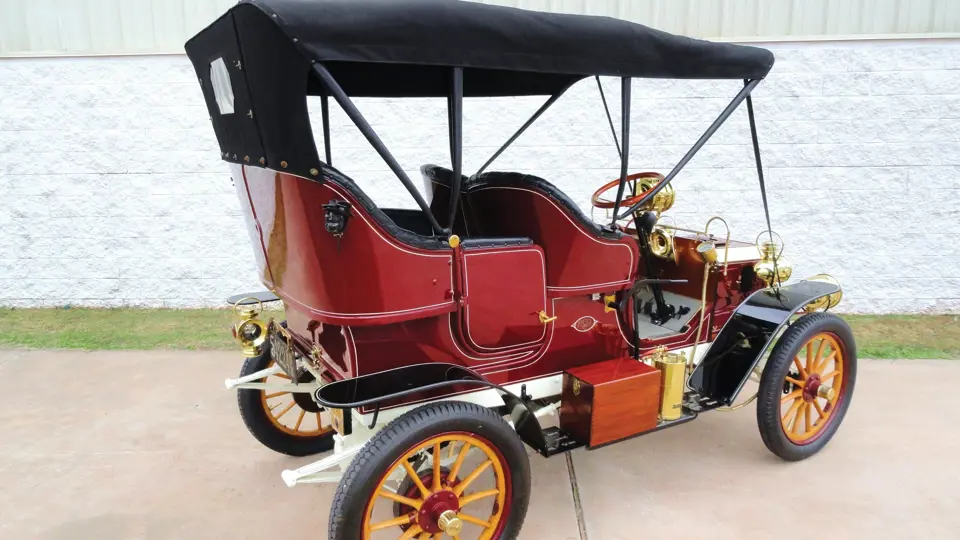
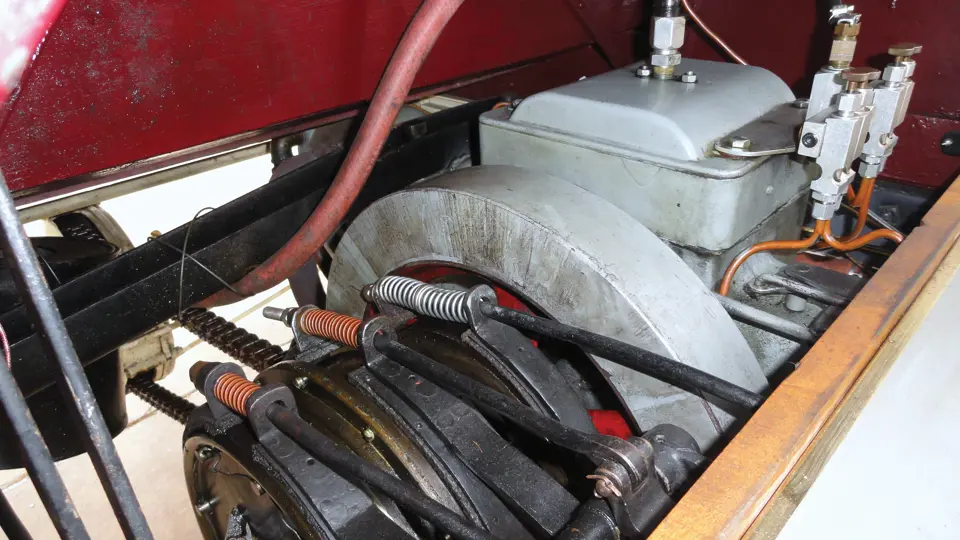
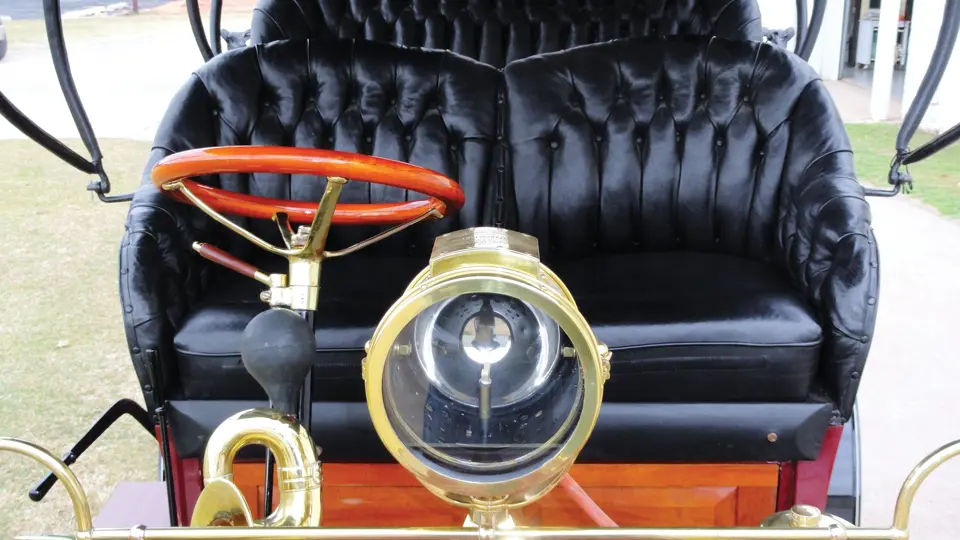

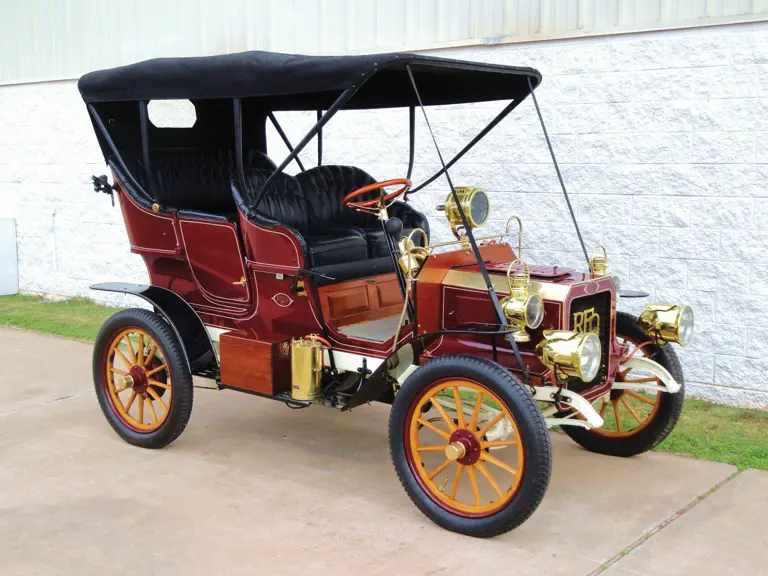
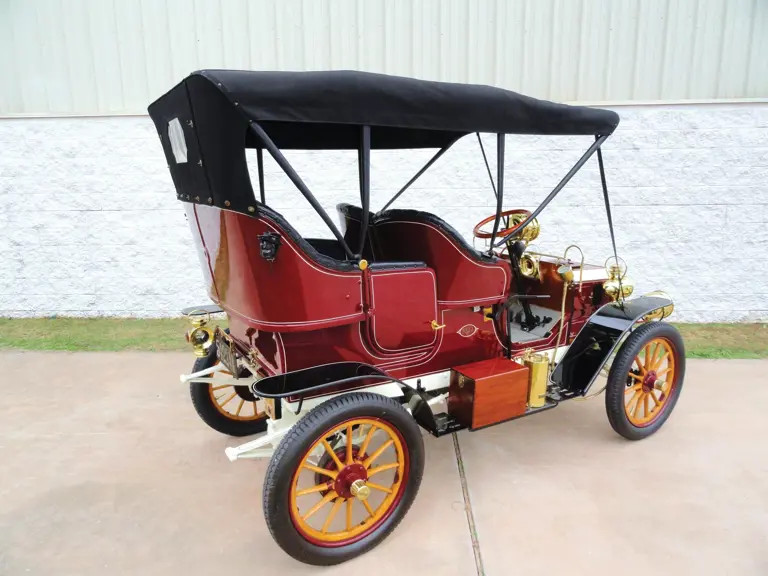
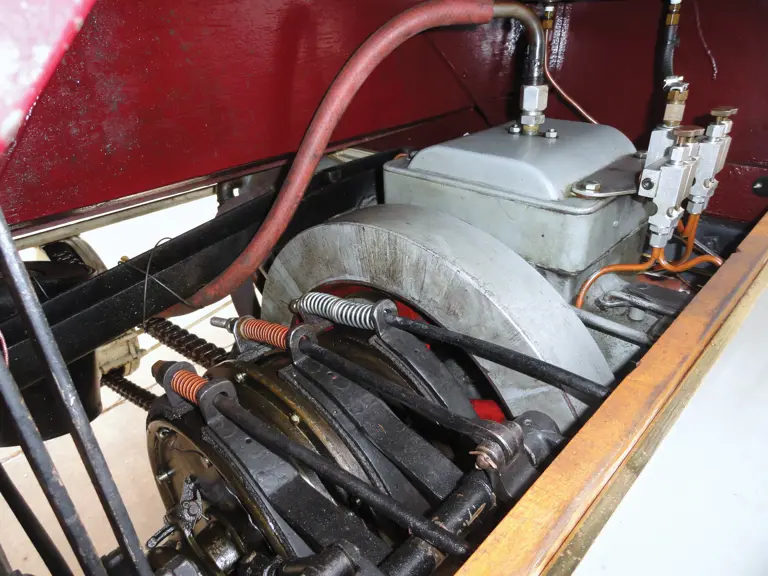
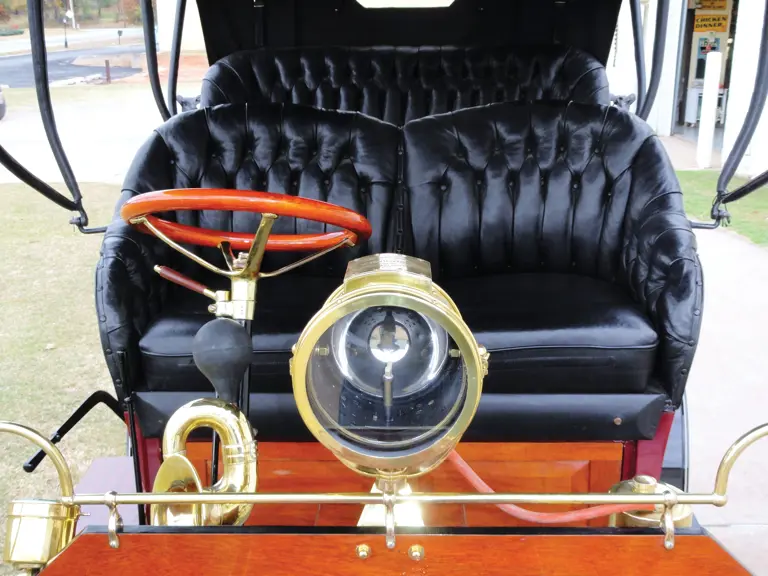
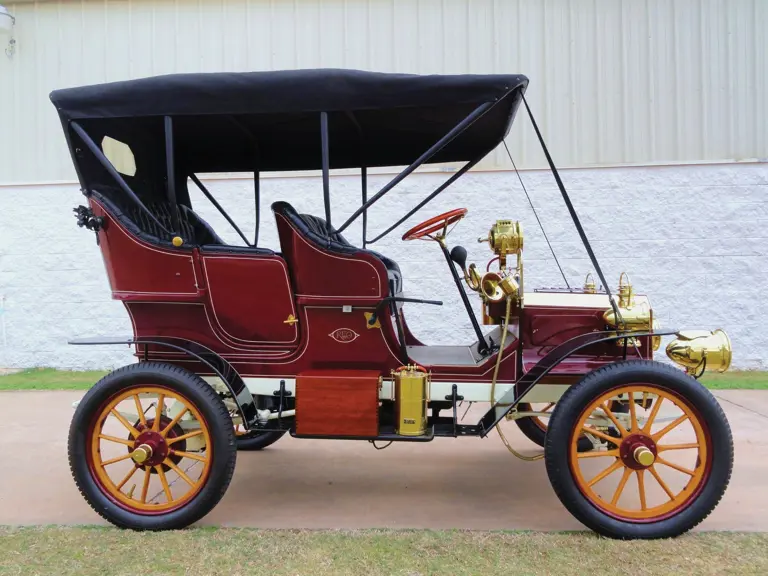
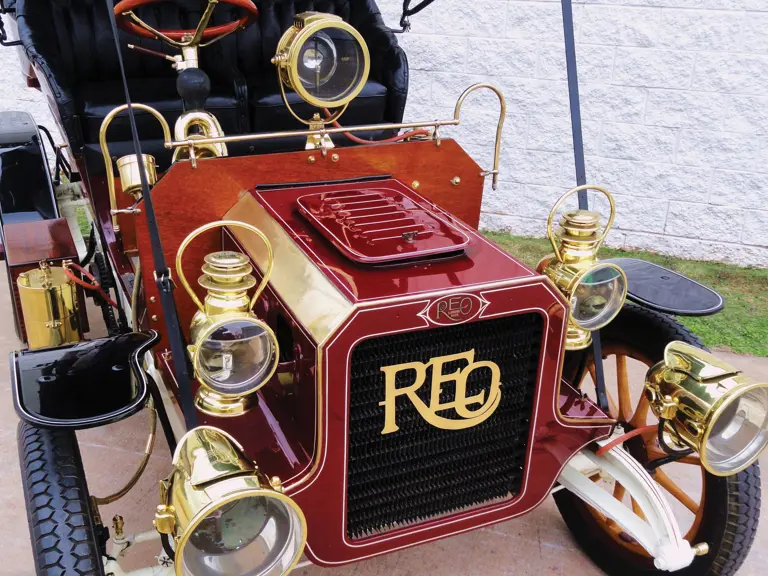
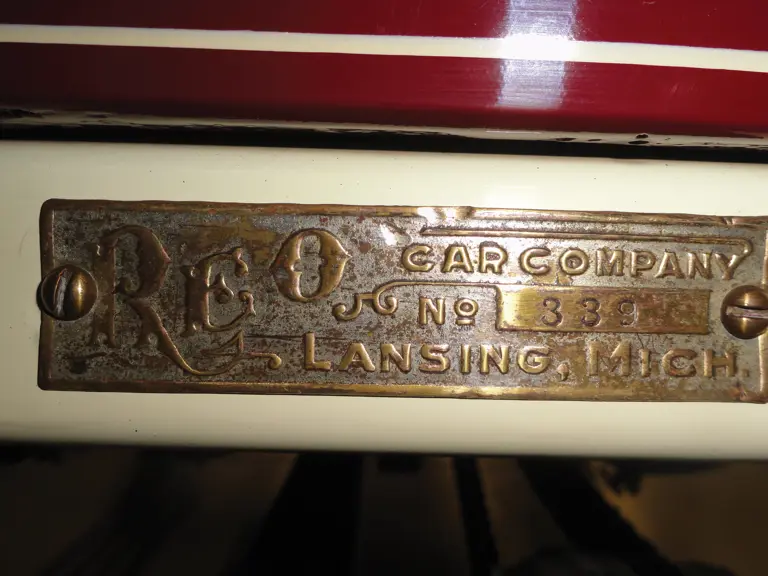
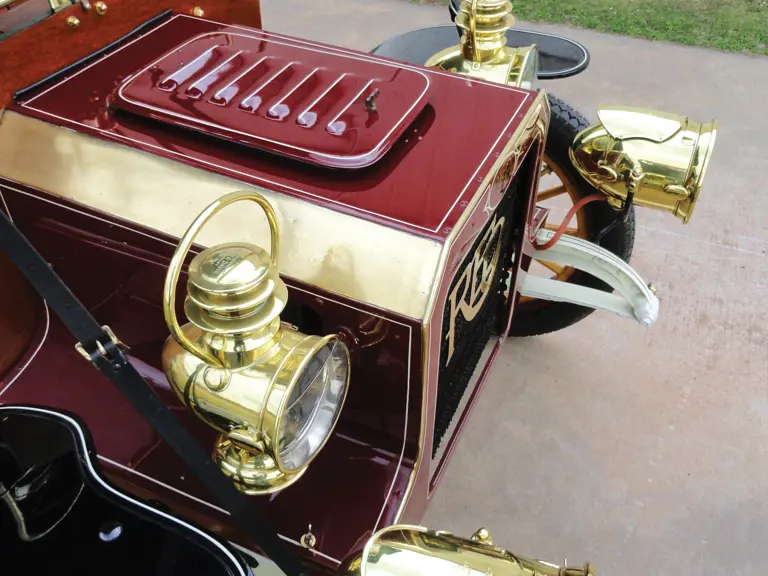
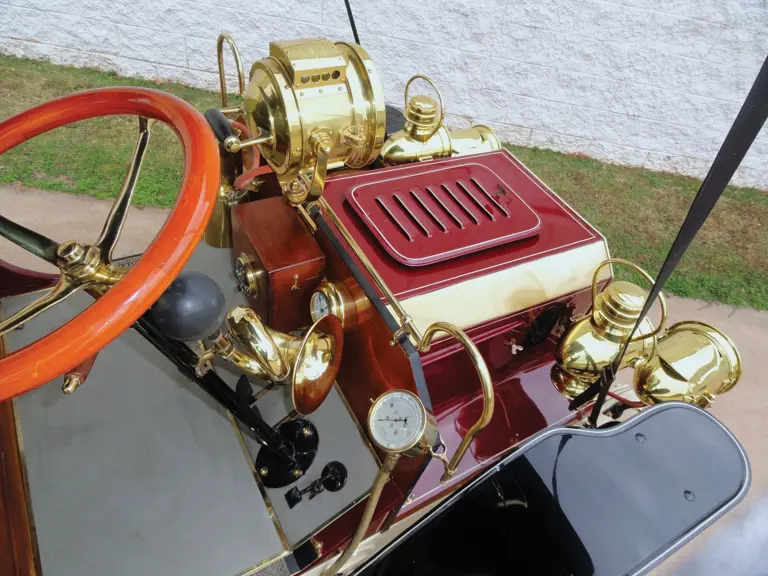
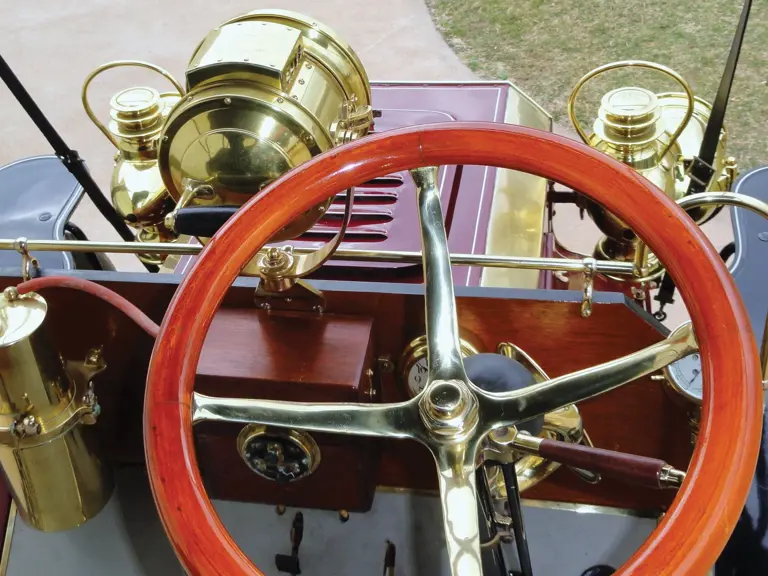
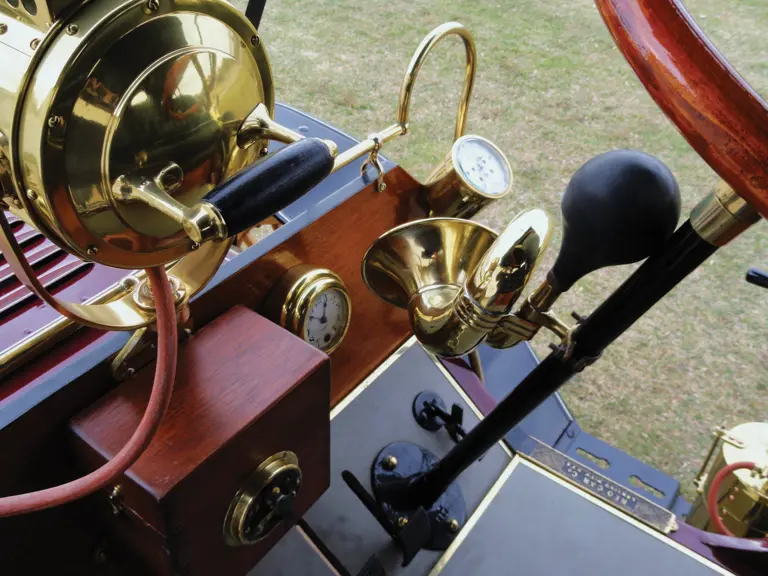
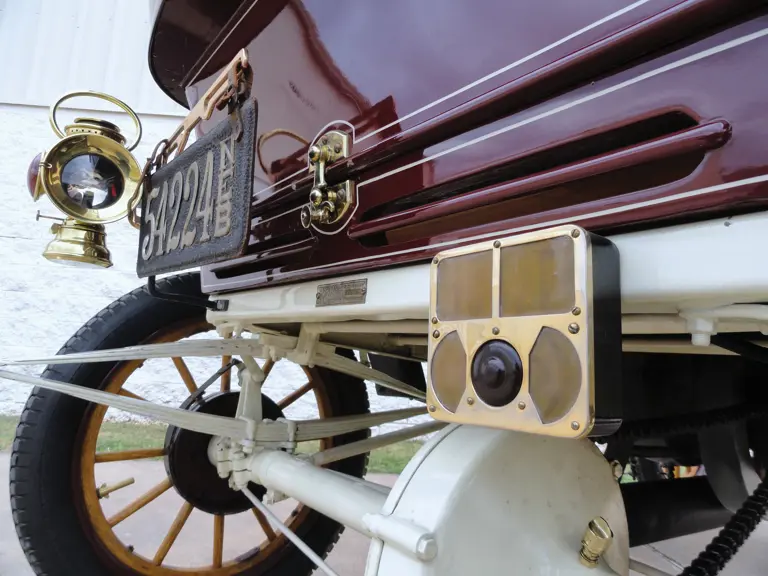
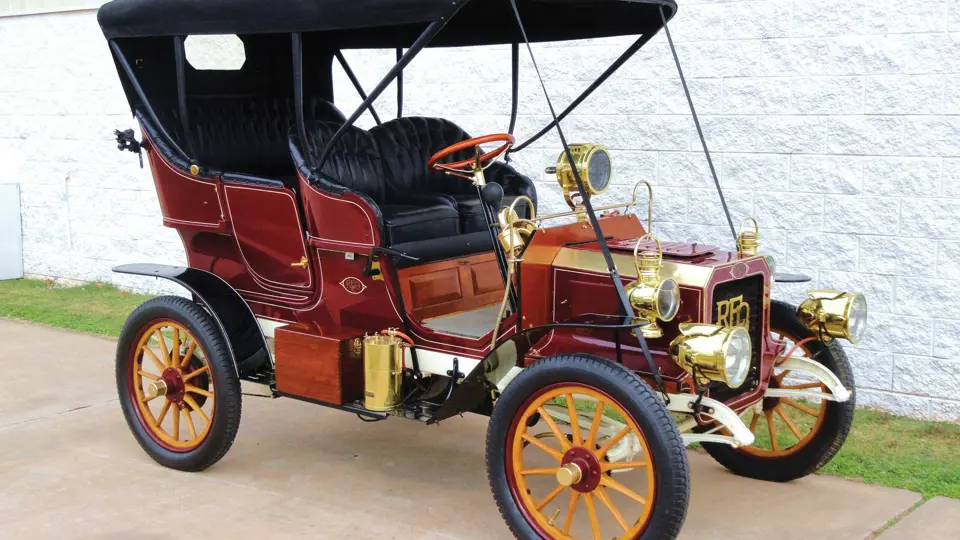
 | Phoenix, Arizona
| Phoenix, Arizona
